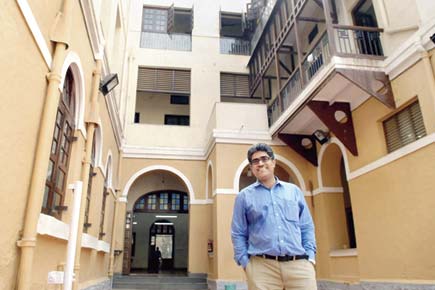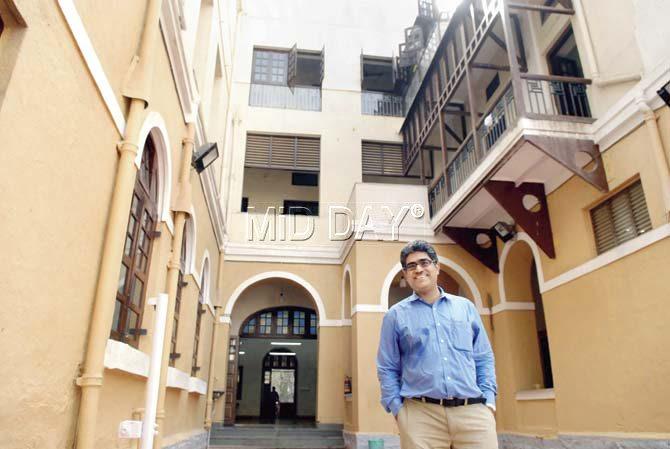Conservation architect Vikas Dilawari speaks to Fiona Fernandez on how the BMC can change its recently scrapped development plan to better protect Mumbai’s heritage, by mapping all historical structures and giving the Heritage Committee full control

The BMC’s development plan (DP) for 1991 was hailed throughout the country for introducing heritage legislation. Ironically, this legacy could have been wiped out by the proposed DP 2034, had it not been scrapped by the state government yesterday.
ADVERTISEMENT

According to conservation architect Vikas Dilawari, the scrapped DP proposal could have wiped out the previous DP’s legacy of heritage protection. Pic/Sayed Sameer Abedi
With not even a separate chapter dedicated to heritage and conservation, the cancelled proposal played down on the city’s rich history, and worse, sought to destroy it with shocking omissions and road widening plans.
Serious flaws
Heritage areas do not cover more than 7.5 per cent (approximate) of the city, but this 7.5 per cent commands high commercial value, and, hence, is considered a major hindrance or liability by planners.
Mumbai is fortunate to have retained its historic buildings by enabling legislation first introduced in 1995. With the passage of time, however, rules were tweaked and Grade III cess buildings (residential structures which were tenanted before the 1940s) and heritage precincts were removed from the Heritage Committee’s purview.
Going beyond this, the scrapped DP 2034 had recommended removal of Grade I and Grade III precincts and buildings from the Mumbai Heritage Conservation Committee’s (MHCC) purview, leaving only Grade II buildings in its fold.
This would have meant that previously listed and mapped buildings could have been redeveloped as per generic development laws as high-rises with podium parking, for instance, which would have eroded the city’s planning and pattern, and its unique architectural heritage character.
Road widening
The proposed road-widening plans would have resulted in the demolition of most historic building façades that have existed for more than a century and give our city a unique identity (see box). It would have resulted in the removal of full-grown trees, thereby causing major hazards to the meagre green cover existing in the city.
Vikas Dilawari is a practising conservation architect in Mumbai, with a double Masters in Conservation. Several of his projects have won the UNESCO Asia Pacific Awards. He is a trustee of Indian Heritage Cities Network (IHCN) and co-convener of INTACH Mumbai Chapter.
 Subscribe today by clicking the link and stay updated with the latest news!" Click here!
Subscribe today by clicking the link and stay updated with the latest news!" Click here!






